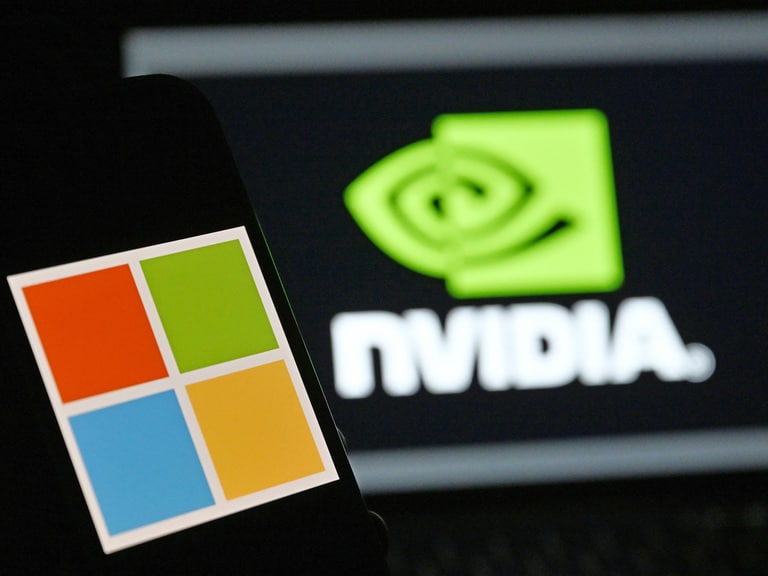At the start of 2020, Apple’s [AAPL] share price made moderate gains before climbing 11.7% year-to-date on 12 February. However, it took a tumble during the March market sell-off, which saw the stock fall 23.4% year-to-date when it closed at just $55.74 on 23 March.
Within three weeks, Apple’s share price had recovered most of its lost value and gradually made its way to its then best-ever close of $133.95 on 1 September — up 84% year-to-date. The value didn’t stick, however, and Apple’s share price had fallen 20.4% by 20 September.
Apple’s share price bounced back and grew steadily through to the end of 2020, marking another record for itself when it closed at $136.69 on 28 December. This was beaten again on 25 January 2021 when it closed at $142.92 — the highest in its history — driven by rumours of record-breaking first-quarter earnings, due 27 January.
Looking more closely at Apple’s share price performance over the course of its first quarter of fiscal year 2021, which ran 27 September to 27 December, the stock has grown steadily since early-November.
Investors in the wider tech theme will be watching Apple’s share price closely following the release of its Q1 earnings, due 27 January. So, what could the report hold?
How has Apple been performing?
When Apple released its fourth-quarter earnings on 29 October, it posted earnings of $0.73 per share, beating the Zacks consensus estimate of $0.69 per share by 5.8%, but dropping 3.9% from year-ago earnings of $0.76 per share.
Meanwhile, revenues totalled $64.7bn, beating consensus estimates by 0.8% and marking a growth of 1.1% from 2019’s fourth-quarter sales of $64.0bn. Apple has consistently beaten both earnings and revenue expectations over the last four quarters.
$64.7billion
Apple's Q4 revenue - a 1.1% YoY rise
“Our results for this quarter were ahead of our expectations, driven by stronger-than-expected iPhone and services performance,” said Tim Cook, CEO of Apple, during the Q4 earnings call. Meanwhile, Luca Maestri, CFO of Apple, noted that “services set an all-time record of $14.5bn, growing 16% year-over-year”. This includes Apple TV Plus, Apple News Plus and Apple Arcade as the company takes on other tech services such as Netflix [NFLX] and Spotify [SPOT].
Despite the positive earnings, Apple’s share price fell 5.7% over a two-day trading period, closing at $108.58 on 2 November. However, the stock was quick to bounce back and finished the week on a high when it closed at $118.69 on 6 November.
“Our results for this quarter were ahead of our expectations, driven by stronger-than-expected iPhone and services performance” - Tim Cook, Apple CEO
As a cornerstone of big tech, Apple’s performance is a key marker for thematic ETFs such as the Invesco QQQ Trust [QQQ] — the growth of which followed very similar trends to the Nasdaq but just managed to outpace the index for much of 2020. The QQQ grew 47.3% over the course of last year, compared to the Nasdaq’s 43.6%.
Apple makes up 13.4% of the QQQ, alongside other companies that are primarily involved in the research, development and distribution of tech products and services.
Looking ahead to the upcoming results, analysts expect Apple to post earnings of $1.39 per share, which would mark a year-over-year growth of 12.1%. Meanwhile, revenues are expected to grow 11.8% from the year-ago period to reach $102.6bn.
For the full year, analysts expect Apple’s earnings to reach $4.03 per share and for revenues to total $320.73bn. These figures would represent respective year-on-year growths of 22.9% and 16.8%.
Will big tech rally under Biden?
Dan Ives, analyst with Wedbush, believes that the US, led by new president Joe Biden, will be good for the future of big tech stocks and relevant ETFs, but will especially benefit Apple’s share price.
“Overall there’s a view that Biden coming in is going to be bullish for stocks, and especially the tech sector,” Ives told Barron’s. “Biden will begin ratcheting down China tensions, and there is a massive push around stimulus and spending. That’s going to accelerate an economic rebound in the second half of the year.”
While the potential upside is in spite of battles between international regulators and tech giants such as Amazon [AMZN] and Facebook [FB], Ives said it’s unlikely there will be any resolution for at least another year, meaning big tech can continue growing.
“Overall there’s a view that Biden coming in is going to be bullish for stocks, and especially the tech sector. Biden will begin ratcheting down China tensions, and there is a massive push around stimulus and spending. That’s going to accelerate an economic rebound in the second half of the year” - Dan Ives, analyst with Wedbush
“It’s a long-term risk for the tech stalwarts,” Ives said. “But right now, there’s still a green light to own tech because a risk of breakups is a longer-term tail risk.”
Wedbush maintains its bullish outlook on big tech and Ives says there’s still room for 25% growth. Apple is among Ives’ favourite stocks “because people upgrading their smartphones to 5G models will help sales, and there is little risk of the government breaking up the company”.
So, while this suggests that a big tech ETF such as the QQQ could minimise risk for short-term gain, Apple may well be a better bet in the long run.
Disclaimer Past performance is not a reliable indicator of future results.
CMC Markets is an execution-only service provider. The material (whether or not it states any opinions) is for general information purposes only, and does not take into account your personal circumstances or objectives. Nothing in this material is (or should be considered to be) financial, investment or other advice on which reliance should be placed. No opinion given in the material constitutes a recommendation by CMC Markets or the author that any particular investment, security, transaction or investment strategy is suitable for any specific person.
The material has not been prepared in accordance with legal requirements designed to promote the independence of investment research. Although we are not specifically prevented from dealing before providing this material, we do not seek to take advantage of the material prior to its dissemination.
CMC Markets does not endorse or offer opinion on the trading strategies used by the author. Their trading strategies do not guarantee any return and CMC Markets shall not be held responsible for any loss that you may incur, either directly or indirectly, arising from any investment based on any information contained herein.
*Tax treatment depends on individual circumstances and can change or may differ in a jurisdiction other than the UK.
Continue reading for FREE
- Includes free newsletter updates, unsubscribe anytime. Privacy policy





